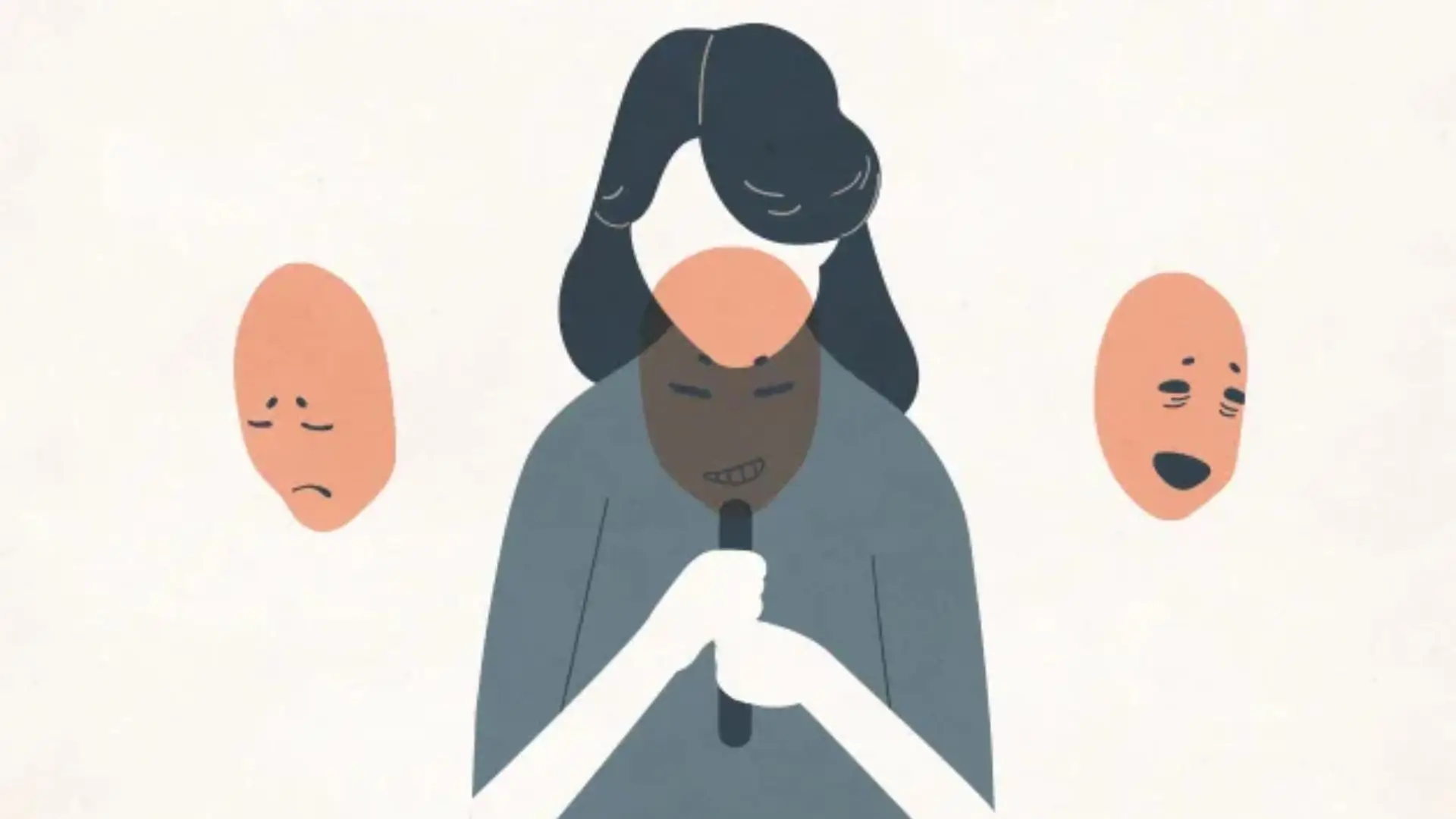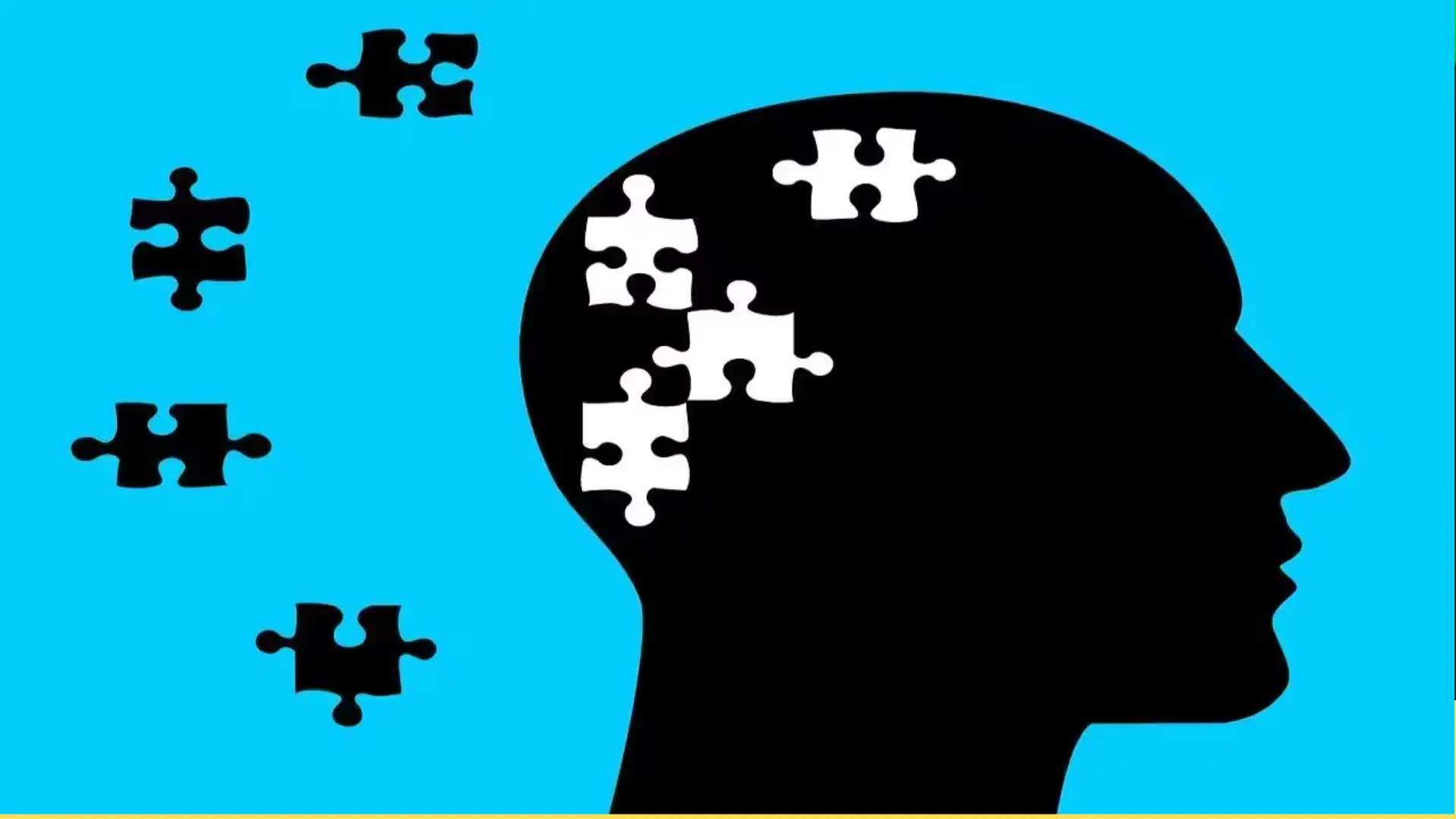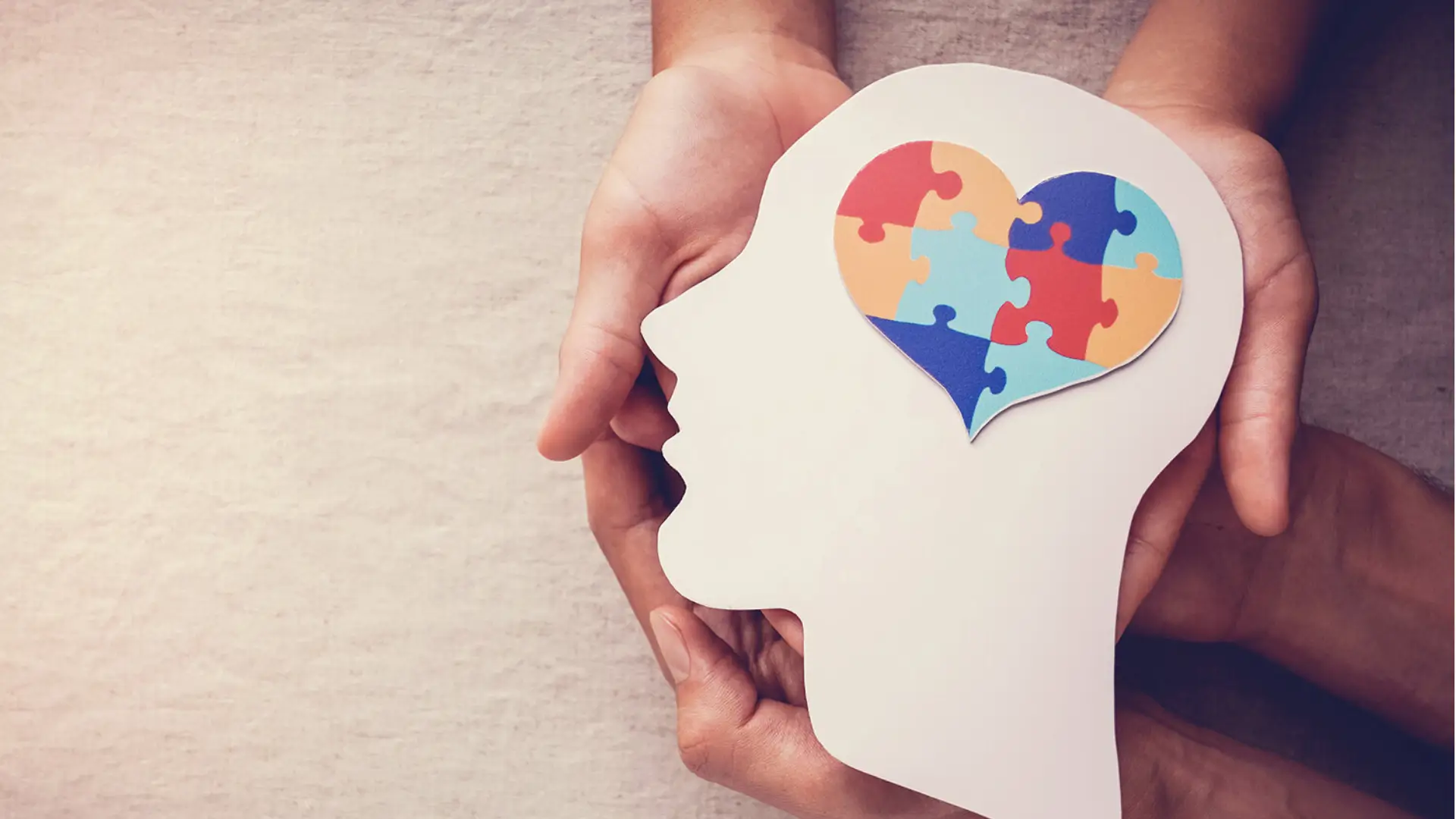Mental Health awareness is slowly removing the stigma associated with mental illness. However, even now, mental health is not given as much priority as physical health. Despite the fact that a lot of times it is our mental health that has a direct impact on our physical health, we as a society overlook its importance and there are still some very common mental health misconceptions present around us and this mostly happens due to lack of awareness as well as the human tendency to believe the first piece of
information that comes our way without checking twice.
So, to clear the widespread misinformation around mental health, we are going to fact check 15 Common Misconceptions about mental health. Afterall, learning the facts is the best way to clear the fog of myths.

1. Mental Health Issues are a Sign of Weakness
- Mental health issues are conditions, not reflections of moral weakness.
- Numerous factors, including environment, genes, and life events like past abuse and the trauma associated with it can be a cause of mental health issues.
- Having poor willpower or being weak has nothing to do with a mental health issue.
- Individuals aren’t given the option to have or not have it.
- To be honest, it takes a lot of bravery and strength to admit that you need help for a mental health concern.
2. Having a Good Friend is same as having a Good Therapist
- Healthy friendships provide a lot of emotional support to people and play an important role in living a meaningful life.
- However, this does not mean that a good friend can be a replacement for a mental health professional.
- Speaking with friends and participating in structured therapy sessions differ significantly.
- Friends and family cannot offer the same level of support that therapists can.
A mental health professional can provide help in the following ways:
- By objectivity and active listening
The therapist’s job is to listen intently and provide you with techniques and tools to improve your condition. They won’t judge you, they won’t take sides, and they won’t use any information against you.
- By Maintaining Confidentiality
Due to privacy laws, people are frequently more comfortable disclosing personal information to mental health professionals.
- By Applying Therapy Skills
With their specialised training, mental health coaches, therapists, and counselors personalize therapy to meet your individual needs. They apply treatment plans that have been shown in mental health studies to be successful.
3. Individuals dealing with Mental Health Issues are Unable to Work.
- Employees with mental health issues can be as productive as those without them, particularly if they are able to effectively manage the condition they have.
- The majority of persons with mental health concerns are in fact employed, despite the fact that those with severe illnesses are less likely to do so than those with milder ones.
- Over one-third of those who suffer from severe mental illness are also employed.
- Research indicates that working can improve the quality of life and health of most individuals with mental health conditions.
4. Mental Health Problems Do Not Affect Children.
- Although it’s simple to ignore mental health issues in kids and teenagers, even young children may show symptoms.
- These mental health issues can result from the interaction of psychological, social, and biological factors and are often diagnosed clinically.
- Early treatment can lessen the severity of the condition and lower the chance of developing subsequent problems such as substance abuse and difficulties in school.
5. It is Impossible to Provide Support to People Dealing with Mental Health Problems.
This mental health misconception can be removed by working on:
- Building strong social and emotional skills.
- Getting help and support at a young age, forming warm, caring, and supportive family relationships.
- Having a positive school environment, and maintaining good sleep habits.
Family and friends can play a significant role in assisting someone in receiving the care and services they require by:
- Respecting them in the same way that you would respect any other person.
- Making mental health services accessible to them.
- Putting the person before the diagnosis or derogatory terms like “mad”; instead, speak to them as individuals.
- Teaching them self-care and coping mechanisms, as well as collecting and spreading accurate information about mental health.
- Making communication and informing them of your availability for support.
6. Only those with Severe Problems should Receive Mental Health Care.
- Even if you don’t have a diagnosable mental health concern like anxiety or depression, everyone has mental health.
- You can still gain from mental health support even if your problems with mental health are more on the milder side, like relationship problems or stress.
If therapy isn’t the best option for you, there are still plenty of other ways to improve your mental health, like:
- Maintaining healthy lifestyle habits
- Maintaining regular exercise routines
- Eating a balanced diet
- getting regular sleep
- interacting with the people you care about in general.
- Installing Mental health and self care apps
With the help of DIY resources, you can learn practical self-care techniques at your own pace.
Although they cannot take the place of therapy, they can be a helpful place to start for those who aren’t ready to see a professional just yet.
- Mental Health Therapy
A certified therapist can assist you in problem-solving, goal-setting, and development of coping skills.
7. All individuals with Mental Health Issues are Violent
- While some individuals with specific mental illnesses do have the tendency to become violent and unpredictable, this is not the norm.
- The majority of individuals with mental health issues are not any more likely than others to use violence.
- Compared to the general population, those suffering from severe mental illnesses are nearly ten times more likely to become victims of violent crimes rather than being violent themselves.

8. Mental Health Issues are Not Very Common.
- Possibly never before has this statement been more false than it is today.
- Difficulties with mental health are a common aspect of being human.
- In 2001, an estimate from the World Health Organization (WHO) stated that “one in four people worldwide will experience mental or neurological disorders at some stage in their lifetimes.”
- In 2017, depression, one of the most prevalent mental health conditions, affected more than 264 million people worldwide.
- An estimated 6.8 million adults in the United States, or more than 3 out of every 100 people, suffer from Generalized Anxiety Disorder (GAD), another widespread mental illness.
- A mental health issue can affect anyone, even those with the most ideal lives, ideal circumstances, or cheerful personalities.
9. Therapy for Mental Illness is Ineffective.
- Studies have refuted this misconception regarding mental illness.
- Many studies have demonstrated the efficacy of therapies like Dialectical behaviour therapy (DBT), interpersonal therapy and cognitive behavioural therapy (CBT) in the treatment of mental health issues.
- Individuals may require medication, therapy, or a combination of the two as treatment for mental health issues.
- In the process of healing and recovery, many people find that working with a support system is beneficial.
10. Eating Disorders are a Lifestyle Decision that Exclusively Affects Women.
- One of the common mental health misconceptions surrounds eating disorders
- It’s a dangerous myth.
- Eating disorders are severe mental health conditions that can be fatal in certain circumstances.
- It’s also a common misconception that eating disorders only affect women. But the fact is that anyone can be impacted by them irrespective of gender.
- A ten-year study that looked into the demographics of eating disorders discovered that they are changing.
- Males from lower-income backgrounds, and those 45 years of age and older experienced significant increases in the prevalence of eating disorders.
- Additionally, studies show that men currently make up 10–25% of the population in cases of bulimia nervosa and anorexia nervosa and 25% in regards to binge eating disorders.
11. Adolescents with Good Academic Performance cannot have Mental Health Issues
- Anybody can experience depression, regardless of their financial situation or outward appearance of well-being.
- Young people who perform well in school could experience difficulties at home or feel pressured to succeed, which can lead to anxiety.
- They might also go through periods of sadness or anxiety for no apparent reason.
- Around 14% of teenagers worldwide suffer from mental health issues.
- Suicide ranks fifth in the world among those aged 10 to 15, and fourth among teenagers aged 15 to 19 in terms of causes of death.
- Approximately fifty percent of all mental health disorders begin by the age of 14.
12. Mental Health Issues are Permanent
- While experiencing difficulties is common, you don’t have to live with them.
- Everybody’s experience with mental illness is unique.
- There are those who go through phases and then go back to what they consider to be “normal.”
- Some people may come across therapies that help them regain their sense of harmony.
13. When Mental Health Issues are Discussed, they get Worse.
- One of the most common mental health misconceptions is that discussing mental health issues, crises, or suicide may instill thoughts in someone.
- They could be concerned about saying the wrong thing or upsetting someone.
- Additionally, they might shy away from discussing mental health issues out of a fear that doing so will embarrass them and others.
- But the fact is that it actually benefits people to have constructive and safe conversations about suicide and mental health issues.
- We must acquire the skills necessary to have accurate, polite, and safe conversations about these topics.
Talking about Mental Health can Benefit in a Number of Ways:
- Stigma is lessened and obstacles to support are removed.
- The improvement of mental health literacy depends on having constructive discussions about mental health.
- You’ll feel less nervous about saying the wrong thing if you learn how to discuss suicide and mental health in a safe and healthy way.
- When someone has mental health issues, is suicidal, or is going through a difficult time, positive feelings of belonging and connection can make a big difference.
14. Panic Attacks can be Life Threatening
- The most unpleasant part of panic attacks is the overwhelming feeling of fear and a racing heartbeat.
- An individual experiencing a panic attack may be at a higher risk of experiencing an accident.
- They cannot, however, be fatal.
- Locating a safe place can help reduce the risk for someone who is having or suspects a panic attack.
15. The absence of willpower is what causes addiction.
- There is little to no truth to this statement.
- A paper published in Addictive Behaviours Reports describes a qualitative longitudinal study examining the connection between addiction recovery and
- Researchers discovered that overcoming addiction did not depend on a person’s strength of will.
- The Researchers concluded that “Those who suffer from addiction don’t seem to lack willpower; instead, recovering requires learning how to maintain willpower through environmental control.”

A Spirico Summary
There are still a lot of myths and misconceptions about mental health. They can prevent honest and encouraging dialogue and increase stigma for those dealing with mental health issues. They can also pose serious challenges for those who are experiencing these issues and this is why each of us has a responsibility to educate ourselves.
We hope this blog helped you solve most of your doubts about mental health. Feel free to leave a comment below. Team Spirico will respond to all your wonderful queries.
